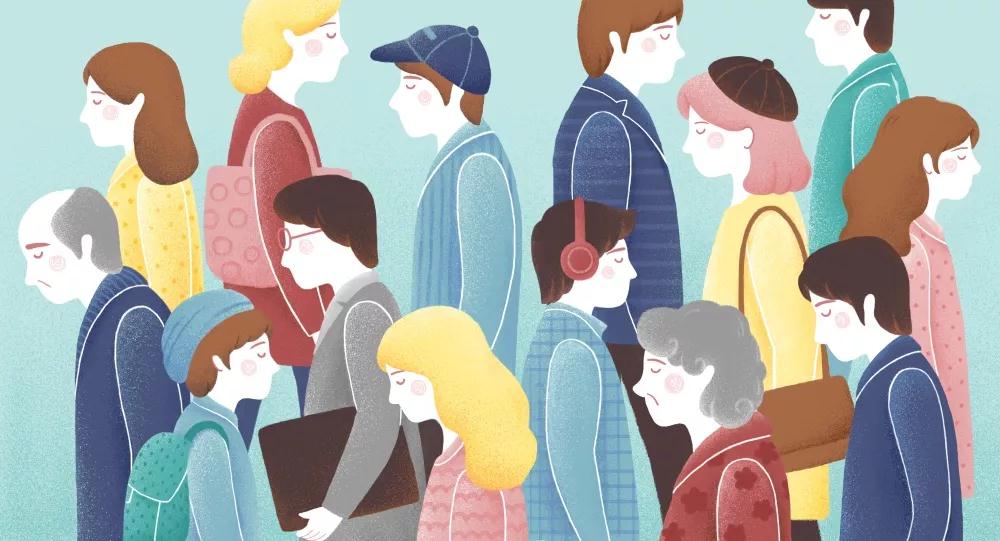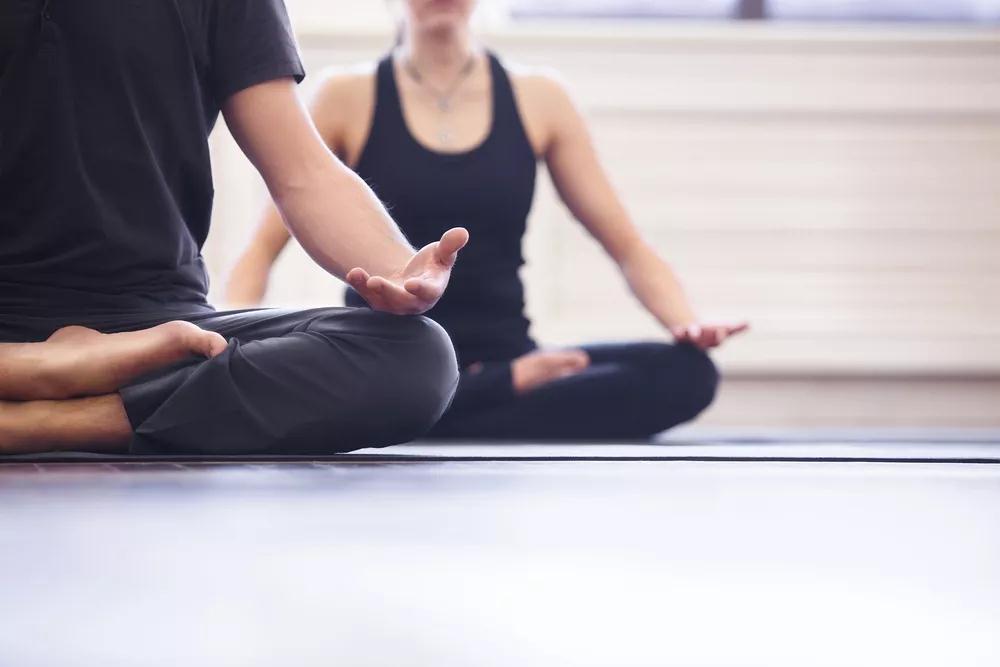Civilization gives birth to loneliness, and progress breeds anxiety. Anxiety is now the Zeitgeist across the world, including the Chinese society.
How to better cope with it and make people feel better? Peng Siqing, marketing professor at Peking University’s Guanghua School of Management, offers a fresh interpretation of anxiety and put the spotlight on consumption as a drug to treat it — for better or worse.

MARATHON ANXIETY
Every society and every period is characterized by its own spirit. In January last year, the U.K. Prime Minister Theresa May appointed a minister for loneliness after a 2017 report revealed that more than nine million people in the country often or always feel lonely. “For far too many people, loneliness is the sad reality of modern life,” May was quoted as saying.
To some extent, loneliness is more prevalent and severe in modern, rich societies where people are expected to move faster and work harder. However, in a developing country where citizens have to work extra hard to shake off poverty and pursue a well-off living, anxiety might be more prevalent.
For scholars like German sociologist Georg Simmel (1858~1918), modernization is itself a process that makes people anxious. In China’s early modernization period in the 1980s, hope and excitement was everywhere. When situations became more complicated and issues emerged, people began to experience setbacks and anxiety kicked in. A 2019 report on China’s consumption trends shows that 76.2 percent of Chinese consumers experience anxiety, which is reasonable in the context of China’s fast development. The harder people pursue better living and a sense of security, the more likely they will feel frustrated and anxious. Therefore, anxiety, viewed positively, is an issue of progress.
The anxiety people suffer nowadays can be called “marathon anxiety”. From career development, making money, health care to children’s education, people in today’s society are coerced into all kinds of competitions. Running in any given lane under the watchful eyes of the mainstream is the norm, and struggling to be in the lead is the goal. Consequently, current performances and future expectations are key factors influencing contestants’ morale, and any setbacks and uncertainties can trigger anxiety.
Today’s anxiety can be divided into three categories: competence anxiety, resulted from worries that personal abilities are inadequate; status anxiety, out of fears that one’s position in the society lags behind; uncertainty anxiety, due to worries that living and working environments might be changing and competition rules are ambiguous. For a contestant, the first two anxieties are almost inevitable and can, if controlled at a reasonable level, serve as a momentum to constantly improve oneself and work hard. The last kind is connected with the general social environment and system that individuals can hardly change. In general, it requires the joint efforts of individuals and the society to cope with these anxieties. In reality, it is difficult for individuals to cope with all kinds of anxieties in a reasonable manner, and emotional reactions are more likely. This is where consumption comes in, and the three kinds of anxieties can potentially boost three kinds of consumption.

COMPETENCE ANXIETY VS DEVELOPMENT CONSUMPTION
As knowledge, technologies, trends and cultures are updating more relentlessly, people might have a hard time relying on their current levels of abilities and resources to cope with the increasingly complicated and changing world. Therefore, consumption focusing on improving one’s competence is a popular way of coping with anxiety.
Development-focused consumption improves one’s abilities and relieves anxiety in a wide spectrum of aspects. People go to colleges for degrees, online courses for quick knowledge, gyms for better strengths and stamina, cosmetic surgeries for better appearances and financing services to make more money.
Meanwhile, some people might also choose to reconcile with their current selves amid high pressures by consuming products whose advertising slogans usually contain phrases such as “take comfort”, “slow down” or “feel the moment” as a way of escaping cruel realities.

STATUS ANXIETY VS COMPENSATORY CONSUMPTION
Comparison is a key word in today’s society, and it is always encouraged to compare up with people better than oneself while traditional sayings such as “better off than many” or “contentment is happiness ” are frown upon in mainstream values. One frequently finds lengthy articles shared in social-networking circles with titles such as “Your peers are getting ahead of you”, and low status or falling down the social ladder can lead to severe status anxiety. In this case, people resort to compensatory consumption to relieve such anxiety by buying the latest, high-end cellphones, bags and other products to flaunt their personal tastes and images that indicate higher social status.
One particular kind of compensatory consumption is intergeneration — usually an older generation’s inadequacy being compensated by young generation’s consumption. Many parents are willing to lower their own living qualities to ensure that their children get the most resources so that they can go to a better school and enjoy better lives.
UNCERTAINTY ANXIETY VS CONTROL CONSUMPTION
As China enters the deep end of reform and opening-up and the global environment is becoming more complicated, various kinds of risks and uncertainties can drive people anxious. In order to strengthen a sense of security, they consume products that can make them feel things are more in control.
Games are popular because they offer not only an escape hatch from reality but also a sense of control for gamers. Most in-game rules offer absolute rewards for investment — as long as one invests money or time, their characters will level up and have better equipments and abilities. This affirmative feedback makes games attractive.
From a psychological point of view, one method to boost a sense of controlling is to form a connection with things that are certain so as to reduce negative effects when facing insecurity. For instance, restaurants with nostalgic themes and fashions incorporating old cultures aim to afford customers a tie with the past, and the trending of ancient Chinese studies and meditation are a form of bonding with traditional values.
All kinds of consumption can, to some extent, relieve anxiety. Some companies understandably ride this wave of “healing economy” to offer anxiety-relieving products. However, people should be mindful of the potential adverse effects of “these medicines” to protect consumers from addictions and even severer anxiety. Games are just one example. If one really compares anxiety to a kind of disease and consumption the medicine, then companies, as doctors in the current healing economy, should bear a strong sense of social responsibility when making their products.
 Programs
Programs